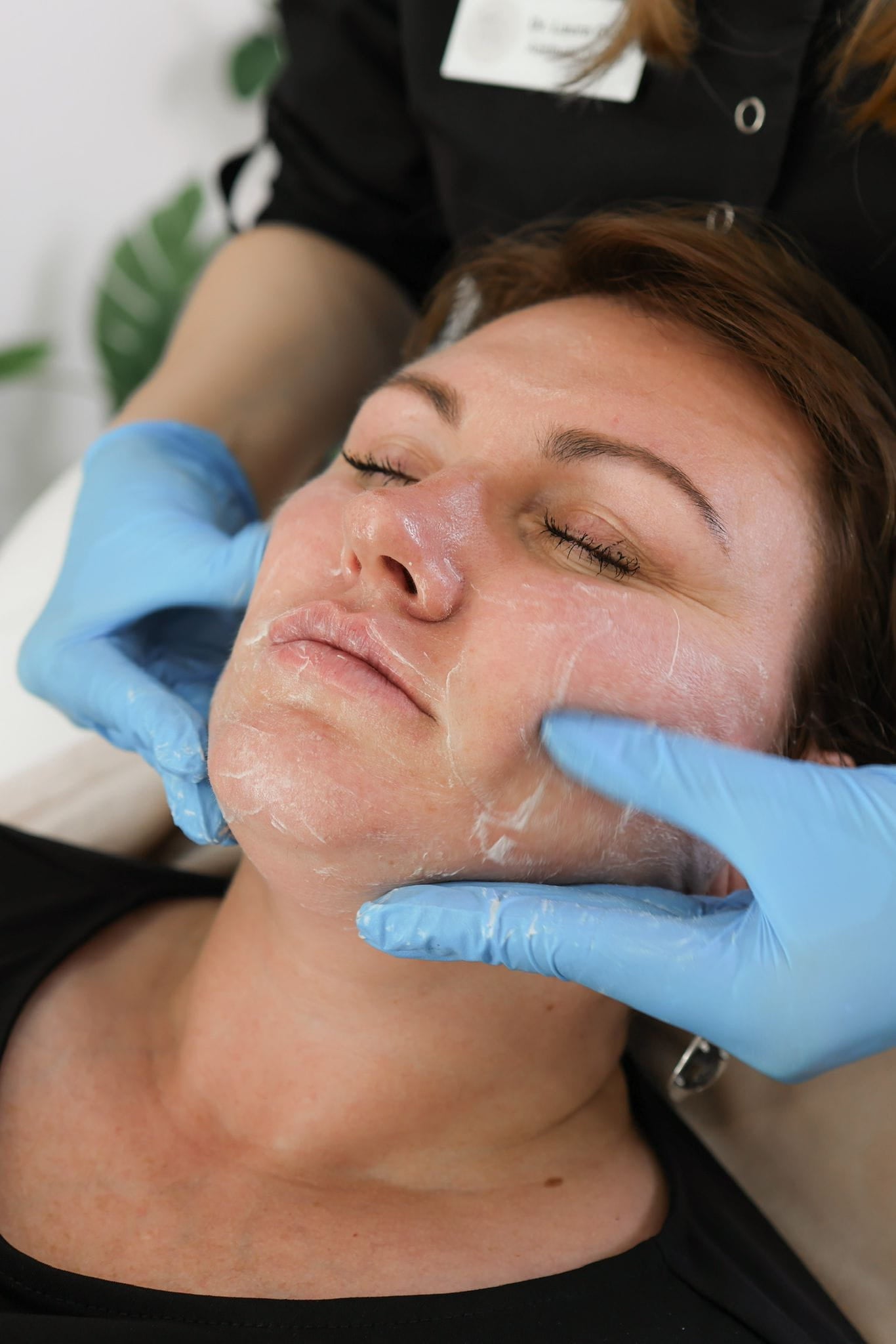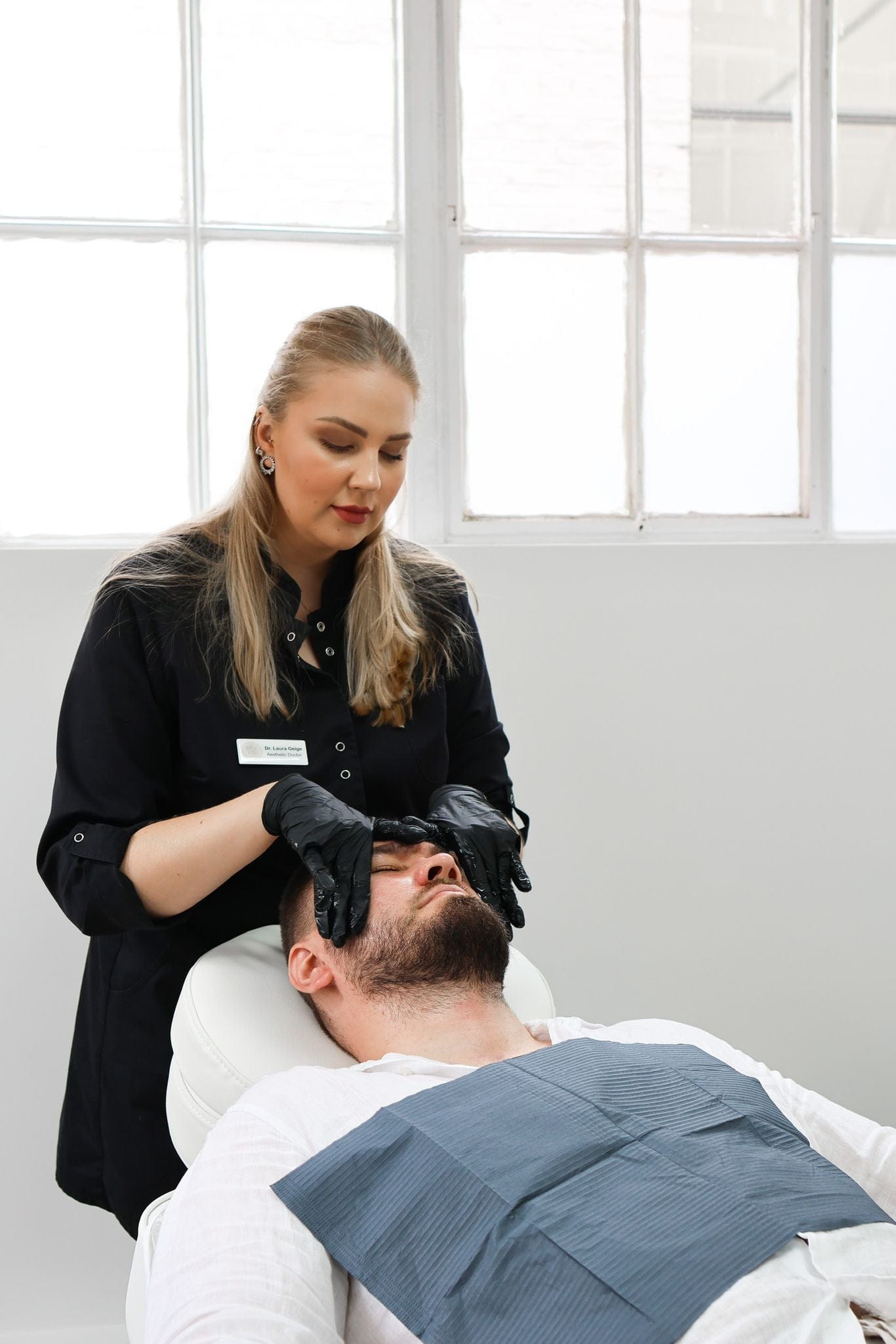Laser Treatments
Laser treatments have become increasingly popular as effective alternatives to traditional skin lightening procedures like the Cosmelan Depigmentation Peel. These treatments utilize focused beams of light energy to target and eliminate pigmentation, resulting in a more even and luminous complexion.

Fractional Laser Resurfacing
Fractional laser resurfacing is a cutting-edge technique that utilizes tiny, microscopic laser columns to penetrate the skin’s surface. Unlike traditional laser resurfacing, which removes the entire outer layer of skin, fractional lasers target only specific areas, causing controlled micro-injuries that stimulate collagen production and cell regeneration. This process effectively reduces pigmentation by promoting new, healthier skin growth while minimizing downtime compared to more aggressive procedures.
Intense Pulsed Light (IPL) Therapy
Intense Pulsed Light (IPL) therapy is another effective alternative to Cosmelan Depigmentation Peel. IPL works by delivering broad-spectrum light energy to the targeted area. This light energy is absorbed by melanin in pigmented skin cells, causing them to break down and eventually be eliminated by the body. IPL can treat various pigmentation concerns, including sunspots, age spots, freckles, and melasma.
Q-Switched Nd:YAG Lasers
Q-switched Nd:YAG lasers offer a precise and effective solution for pigment removal. These lasers emit short pulses of high-energy light that target melanin in the skin. The rapid bursts of energy fragment the melanin, which is then naturally eliminated by the body.
The Q-switched Nd:YAG laser’s unique properties make it ideal for treating various pigmentation concerns such as age spots, sunspots, freckles, and tattoos. Its long wavelength allows it to penetrate deeper into the skin, targeting melanin at different levels. This targeted approach minimizes damage to surrounding healthy tissue, resulting in a more controlled and predictable outcome.
Chemical Peels
Chemical peels have gained popularity as an alternative to traditional skin lightening treatments like the Cosmelan Depigmentation Peel. These procedures involve applying a chemical solution to the skin, which exfoliates the outer layers and promotes cell turnover. Chemical peels can effectively reduce pigmentation by targeting melanin in the skin cells and stimulating new skin growth.
TCA Peels

Chemical peels offer an alternative approach to pigment reduction and skin rejuvenation.
- TCA peels, a type of chemical peel, utilize trichloroacetic acid (TCA) to penetrate deeper layers of the skin, promoting exfoliation and collagen production.
- Depending on the concentration used, TCA peels can range from superficial treatments for mild pigmentation issues to deeper peels addressing more significant concerns like acne scarring and wrinkles.
- Post-peel, proper skincare and sun protection are crucial to ensure optimal results and minimize the risk of complications.
Salicylic Acid Peels
Salicylic acid is a beta hydroxy acid (BHA) known for its ability to penetrate pores effectively. Salicylic acid peels work by dissolving the bonds that hold dead skin cells together, allowing them to be gently exfoliated from the skin’s surface. This exfoliation helps to reduce the appearance of pigmentation by removing the layer of melanin-rich cells on top.
Salicylic acid peels can be used to treat various skin concerns, including acne, blackheads, whiteheads, and hyperpigmentation. They are also suitable for individuals with oily or acne-prone skin as salicylic acid helps regulate oil production and prevent clogged pores.
Compared to more aggressive chemical peels like TCA peels, salicylic acid peels generally have a milder effect on the skin. This makes them a good option for first-time peel users or those with sensitive skin.
Topical Medications
Topical medications offer alternative approaches to treating pigmentation concerns. These treatments utilize active ingredients applied directly to the skin to target melanin and promote skin cell turnover.
Hydroquinone Creams and Serums
Hydroquinone creams and serums are among the most commonly used topical medications for pigment reduction. Hydroquinone works by inhibiting the production of melanin, effectively lightening existing dark spots and hyperpigmentation. These products are available in varying strengths, ranging from 2% to 4%, with higher concentrations generally requiring a prescription.
- It’s important to note that hydroquinone can cause skin irritation and discoloration if used incorrectly or for prolonged periods.
- Therefore, consulting with a dermatologist before using hydroquinone is crucial to determine the appropriate strength and usage duration for your specific skin type and concerns.
Another popular topical option is kojic acid. Derived from certain fungi, kojic acid inhibits melanin production and has been used traditionally in Asian countries for skin lightening.
Kojic Acid Products
Kojic acid comes in various forms, including creams, serums, and spot treatments. It’s generally well-tolerated by most skin types but may cause mild irritation or redness in some individuals. Like hydroquinone, it’s essential to use kojic acid products as directed by a healthcare professional or dermatologist.
Topical retinoids, such as tretinoin and adapalene, are vitamin A derivatives known for their effectiveness in treating acne, wrinkles, and hyperpigmentation. While primarily used for acne treatment, retinoids can also help reduce melanin production and improve skin tone by accelerating cell turnover.
Vitamin C Serum
Vitamin C serums have gained popularity as an effective alternative to Cosmelan Depigmentation Peel. These serums contain L-ascorbic acid, a potent antioxidant that inhibits melanin production and protects against sun damage. Vitamin C also stimulates collagen synthesis, promoting skin firmness and radiance.
When applied topically, vitamin C works by neutralizing free radicals generated by UV exposure, which contribute to pigmentation. By reducing melanin production and protecting the skin from further damage, vitamin C serums help lighten existing dark spots and prevent new ones from forming.
Vitamin C serums are generally well-tolerated and can be used daily in conjunction with other skincare treatments. It’s important to choose a serum with a high concentration of L-ascorbic acid (ideally 10%-20%) for optimal results.
Other Treatments
Beyond traditional methods like the Cosmelan Depigmentation Peel, various alternative treatments offer effective solutions for addressing pigmentation concerns. From laser therapies to topical medications, these options provide a range of approaches tailored to individual needs and skin types.
Microneedling
Microneedling is another promising alternative to Cosmelan Depigmentation Peel. This minimally invasive procedure involves using tiny needles to create controlled micro-injuries in the skin’s surface. These micro-injuries stimulate collagen production and cell regeneration, effectively reducing pigmentation by promoting new, healthier skin growth.
Microneedling can be used to treat various pigmentation concerns, including sunspots, age spots, freckles, and melasma. It’s often combined with other treatments, such as topical serums containing vitamin C or hyaluronic acid, to enhance its efficacy.
Compared to laser therapies, microneedling is generally less invasive and has a shorter downtime. It’s also a more affordable option for many individuals.
Dermabrasion
Dermabrasion is a mechanical exfoliation technique that involves using a rotating abrasive device to remove the top layers of skin. This procedure can be effective in treating superficial pigmentation issues, such as sunspots and acne scars.
During dermabrasion, a special brush or diamond-tipped instrument is used to gently scrape away the outermost layer of skin, revealing smoother, more even-toned skin underneath.
While dermabrasion can be effective for reducing pigmentation, it’s important to note that it’s a more invasive procedure compared to some other alternatives like laser treatments or chemical peels. Dermabrasion also has a longer downtime and potential risks such as scarring and infection.
- Why Can’t You Workout After Lip Filler - November 3, 2025
- What Is The Best Filler For Marionette Lines? - November 2, 2025
- What Are The Alternatives To Nasolabial Fillers? - October 30, 2025
